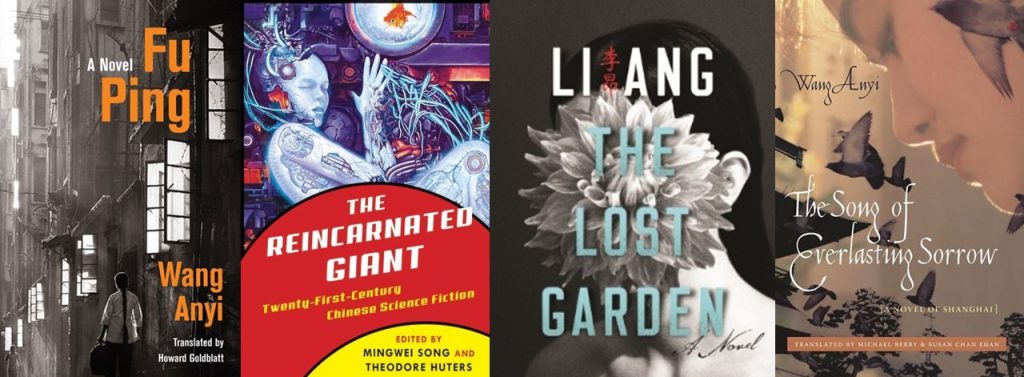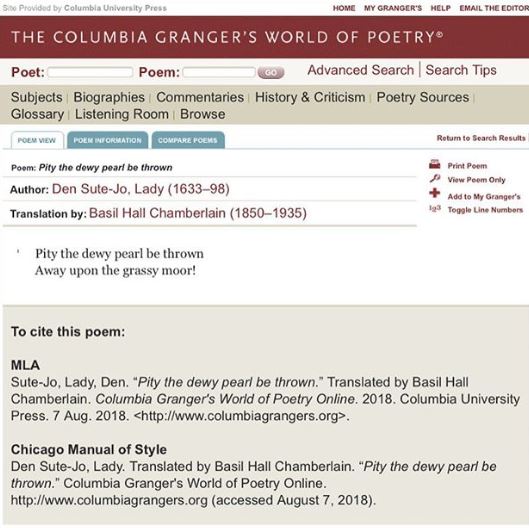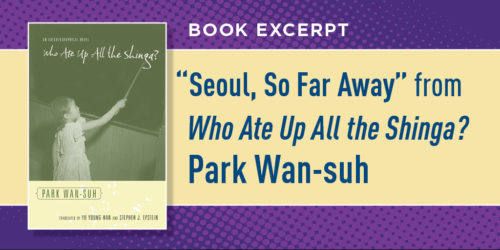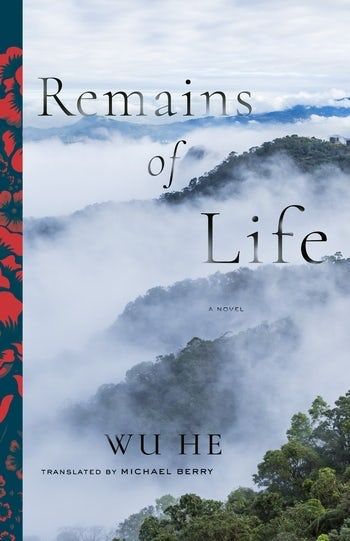Weekend Reading List: Sinophone Fiction in Translation

Week three of Women in Translation month is coming to a close, but don’t fret. We’ve got a list to keep you reading through the weekend. China’s literary tradition includes many engaging works from contemporary female writers. Here a few to get you started.
Remember, today is your last chance to enter our drawing for a chance to win a copy of Fu Ping!
• • • • • •
Read a Q&A with Howard Goldbblatt about translating Way Anyi’s work, and a guest post from author Jie Li about Shanghai Gossip.
Topping the list is this week’s featured title Fu Ping. In this new release, Wang Anyi, one of contemporary China’s most acclaimed authors, explores the daily lives of migrants from rural areas and other people on the margins of urban life.
Nainai has lived in Shanghai for many years, and the time has come to find a wife for her adopted grandson. But when the bride she has chosen arrives from the countryside, it soon becomes clear that the orphaned girl has ideas of her own. Her name is Fu Ping, and the more she explores the residential lanes and courtyards behind Shanghai’s busy shopping streets, the less she wants to return to the country as a dutiful wife. As Fu Ping wavers over her future, she learns the city through the stories of the nannies, handymen, and garbage collectors whose labor is bringing life and bustle back to postwar Shanghai.
Read last year’s WITMonth feature on A Song of Everlasting Sorrow and A Private Life.
Also set in Shanghai, The Song of Everlasting Sorrow follows the adventures of Wang Qiyao, a girl born of the longtong, the crowded, labyrinthine alleys of Shanghai’s working-class neighborhoods.
Infatuated with the glitz and glamour of 1940s Hollywood, Wang Qiyao seeks fame in the Miss Shanghai beauty pageant, and this fleeting moment of stardom becomes the pinnacle of her life. During the next four decades, Wang Qiyao indulges in the decadent pleasures of pre-liberation Shanghai, secretly playing mahjong during the antirightist Movement and exchanging lovers on the eve of the Cultural Revolution. Surviving the vicissitudes of modern Chinese history, Wang Qiyao emerges in the 1980s as a purveyor of “old Shanghai”—a living incarnation of a new, commodified nostalgia that prizes splendor and sophistication—only to become embroiled in a tragedy that echoes the pulpy Hollywood noirs of her youth.
Read the introduction to The Reincarnated Giant in this blog post from National Translation Month 2018.
The Reincarnated Giant showcases the best of contemporary science fiction from Taiwan, Hong Kong, and the People’s Republic of China. Going beyond political utopianism and technological optimism, contemporary Chinese writers conjure glittering visions and subversive experiments—ranging from space opera to cyberpunk, utopianism to the posthuman, and parodies of China’s rise to deconstructions of the myth of national development.
One of these authors is Chi Hui, who writes about virtual reality, A.I., and the future worlds built upon a posthuman vision. Her short story “The Rain Forest” (2007) points to themes of environmentalism as well as interspecies transformation, or metaphorically transgender or transracial identity.
Watch author Li Ang, arguably Taiwan’s most controversial feminist writer, discussed her newly translated novel The Lost Garden with a panel that included her translators Sylvia Li-chun Lin and Howard Goldblatt as well as her CUP Press Director Jennifer Crewe.
The Lost Garden, by Li Ang is an eloquent portrait of the losses incurred as we struggle to hold on to our passions. The novel begins with the family of Zhu Yinghong, whose father, Zhu Zuyan, was imprisoned in the early days of Chiang Kai-shek’s rule. Zhu Zuyan spends his days luxuriating in his Lotus Garden, which he builds according to his own desires. Forever under suspicion, he indulges as much as he can in circumscribed pleasures, though they drain the family fortune. Eventually the entire household is sold, including the Lotus Garden.
The novel then swings to modern-day Taipei, where Zhu Yinghong falls for Lin Xigeng, a real estate tycoon and playboy. Their cat-and-mouse courtship builds against the extravagant banquets and decadent entertainments of Taipei’s wealthy businessmen. Though the two ultimately marry, their high-styled romance dulls over time, leading to a dangerous, desperate quest to reclaim the enchantment of the Lotus Garden.
Fill your collection with works by talented women in translation by taking advantage of our WITMonth sale! Check our website for the complete list of promotional titles and use coupon code WIT2019 at checkout to save 30% on your order.
Categories:Asian LiteratureBook ExcerptBook of the WeekTranslationWomen in Translation
Tags:"The Rain Forest"Chi HuiFu PingHoward GoldblattLi AngMichael BerryMingwei SongModern Chinese Literature from TaiwanSinophone studiesSusan Chan EganThe Lost GardenThe Reincarnated GiantThe Song of Everlasting SorrowTheodore HutersWang AnyiWeatherhead Books on AsiaWITMonthWITMonth19WITMonth19Week3








